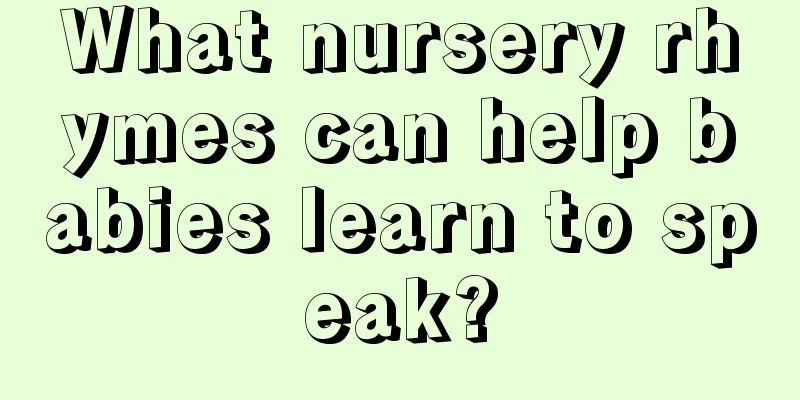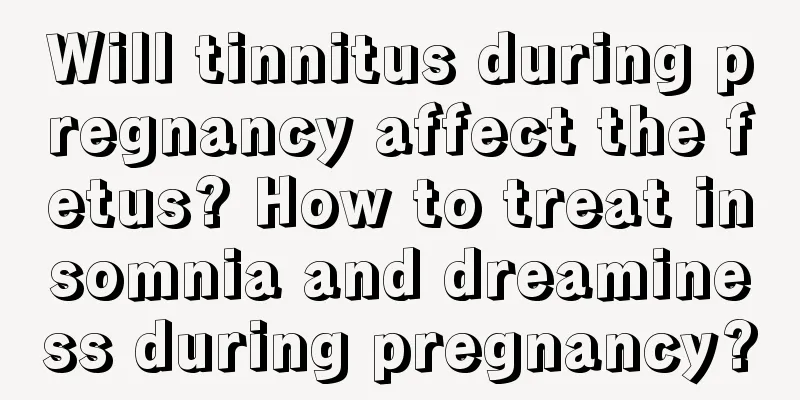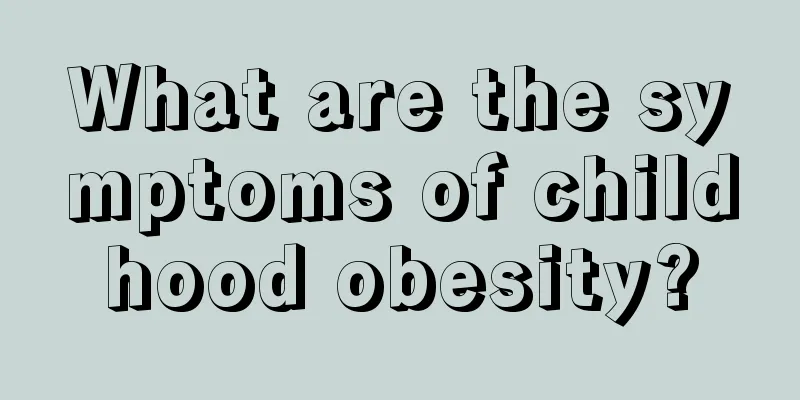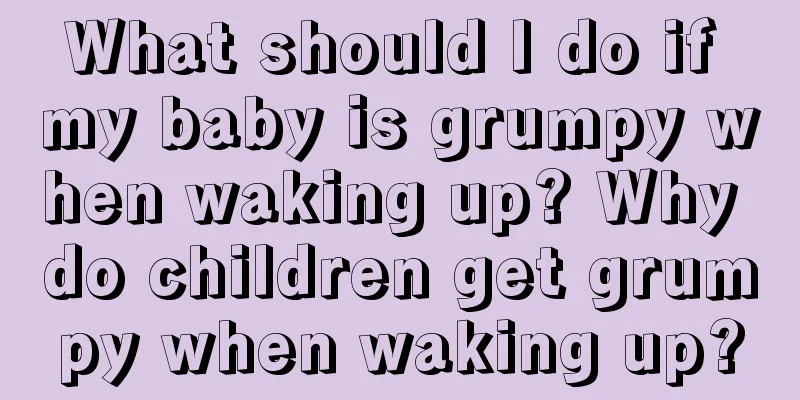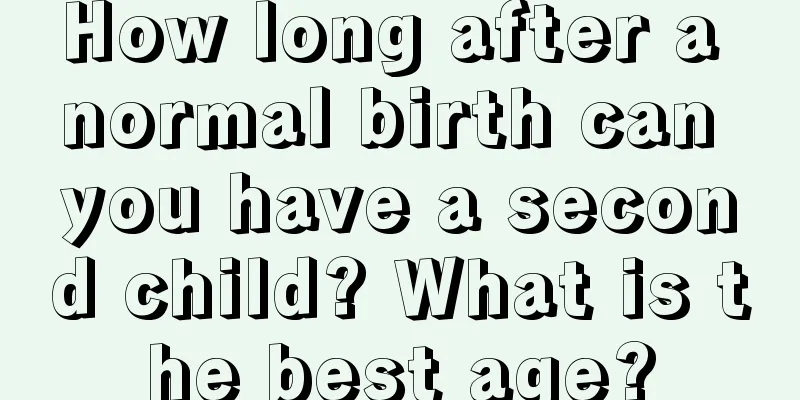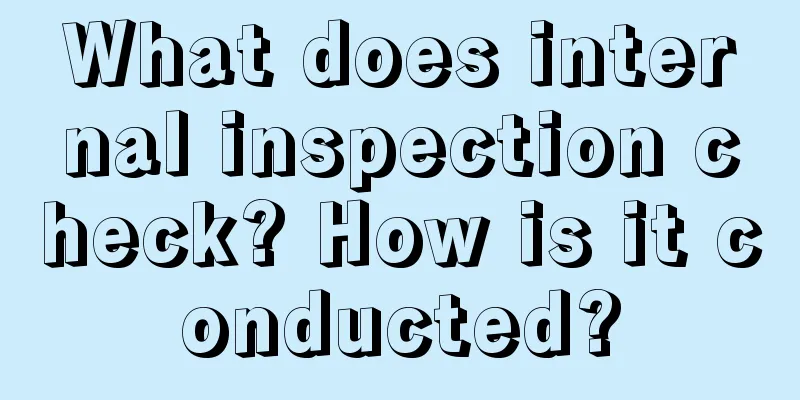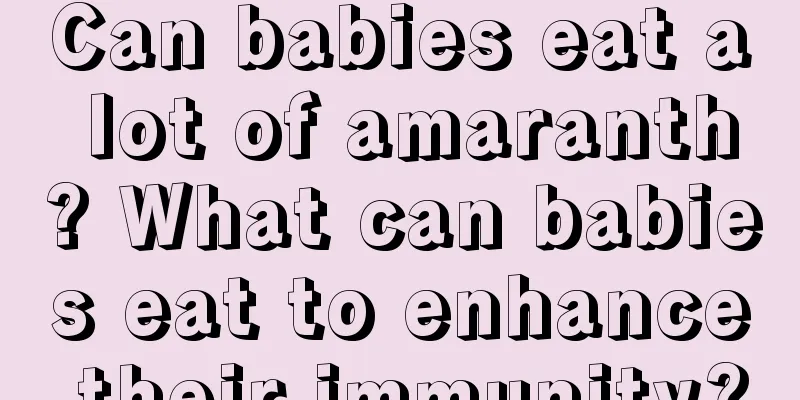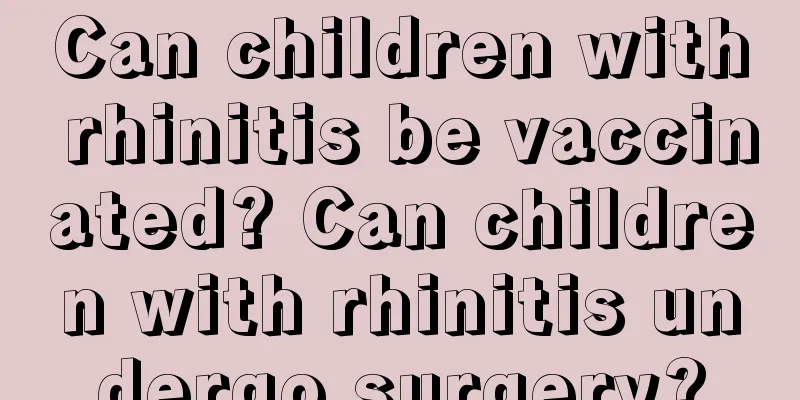At what age does a baby start brushing his teeth and how to choose a toothbrush
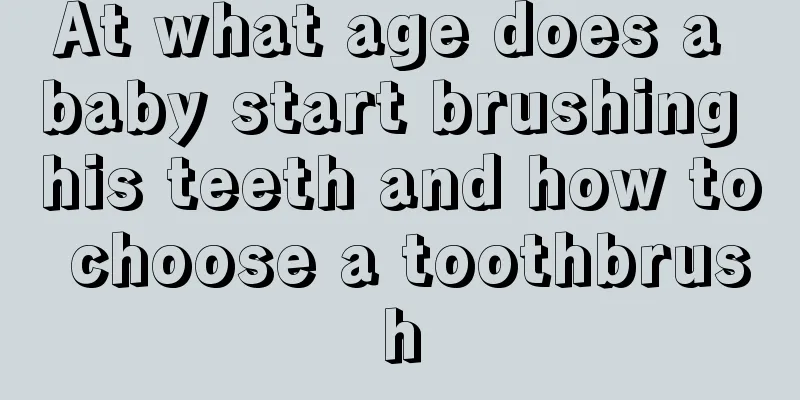
|
After the baby's teeth grow, mothers should start to take care of the baby's teeth. So how old should the baby be to start brushing his teeth? How to choose a toothbrush suitable for the baby? What should be paid attention to when brushing the baby's teeth? At what age should babies start brushing their teeth?1. When the child's first deciduous tooth erupts, you should start to take care of the baby's small teeth, because when the protease in the saliva breaks down food, it will leave a lot of bacteria. If you don't clean it in time, it will attach to the baby's tender teeth and easily cause tooth decay. 2. For very young babies, parents should learn to help them brush their teeth. You can use medical gauze instead of a small toothbrush, dip some water in it and wipe back and forth on the baby's gums. Especially after the baby finishes drinking milk or eating complementary food, be sure to remember to clean them. 3. After the baby is two years old, all the baby teeth will grow out. At this time, you should encourage the child to learn to brush their teeth. Parents can show them how to do it. If the child cannot do it, parents can help them to do it. After the baby is three years old, they should be allowed to brush their teeth independently. How to choose a toothbrushAccording to statistics, in our country, about 90% of 6-year-old children have malocclusion, and children under 12 have an average of 4.2 decayed teeth. In order to reduce the incidence of dental caries in young children, doctors recommend that you pay attention to your baby's oral hygiene from the age of 0, use a toothbrush specially designed for children from the age of 2, and take good care of your teeth from an early age. The three most important stages of children's tooth growth are: early childhood between 2 and 4 years old, preschool between 5 and 7 years old, and school-age children over 8 years old. The three stages have different tooth growth conditions: 2-4 years old is mainly the deciduous teeth stage; 5-7 years old is the replacement teeth stage, when babies begin to grow permanent teeth; after 8 years old, babies enter the replacement teeth stage. Therefore, experts recommend that parents should choose toothbrushes designed for different ages to protect children's teeth. At the same time, because the hand muscles of infants, preschoolers and school-age children develop differently and their teeth grow differently, parents should choose different toothbrushes for their children at different age stages. Precautions for baby's dental care1. Eating sweets is not the culprit of tooth decay. The real reason is that children do not rinse their mouths or brush their teeth after eating, or do not brush their teeth thoroughly. Any accumulation of food residues will lead to dental disease. Therefore, you must remember to let your child drink water or rinse his mouth after eating sweets. If you cannot ensure that your baby's teeth are kept clean, try to give her less biscuits, candies and other foods. 2. Before the baby is 1 year old, you can usually use clean gauze and water to clean the baby's mouth; after 1 year old, the baby usually grows 8 front teeth and starts to grow molars. At this time, you can buy a soft-bristled toothbrush to brush the baby's teeth once in the morning and once in the evening. Since the baby cannot spit out toothpaste and rinse the mouth well at this time, you can use swallowable toothpaste without fluoride. 3. Generally speaking, most babies have their first budding period when they are about 4-6 months old. During this period, babies can only express their feelings through crying. So if babies at this stage drool a lot and cry frequently, but there are no other reasons, you should consider whether they are teething. 4. During the teething period, babies will secrete more saliva, drool a lot, and especially love to suck their fingers. When teething, babies will relieve the discomfort by rubbing their teeth with their fingers. At this time, you can buy some teething gels, teething biscuits, etc. to help relieve the baby's discomfort. Can babies brush their teeth without toothpaste?You don’t need to use toothpaste before the age of three, but you do need toothpaste after the age of three, and fluoride toothpaste is also needed. The World Health Organization recommends that children should also use fluoride toothpaste when brushing their teeth, which can effectively prevent tooth decay. As long as the amount of toothpaste is appropriate, it will not cause harm to the body. Generally speaking, children aged 3 to 7 should use children's fluoride toothpaste, and the amount used each time is the size of a mung bean; children aged 7 to 14 should also use children's fluoride toothpaste, and the amount used each time can be increased to the size of a soybean. In addition, after brushing your teeth with toothpaste, rinse out all the toothpaste with clean water. Finally, check if there are any areas that are not brushed clean, you can choose to gently wipe them clean with a cotton swab dipped in clean water. |
Recommend
New parents must read: Tips on how to let your baby eat by himself
In order to make their children eat well, mothers...
How can older women improve the quality of their eggs? What should older women pay attention to when preparing for pregnancy?
In today's society where women are becoming m...
Can bath towels still be used if they have black spots? How to remove black spots from bath towels?
I don't know what happened, but black spots a...
Does eating sweets affect children's growth? Does eating sweets affect children's height?
Will eating sweets affect children's growth? ...
Can I take medicine if I catch a cold during the pregnancy preparation period? Will a cold during the pregnancy preparation period affect pregnancy?
There is a tragedy called catching a cold when pr...
How to distinguish the authenticity of super laundry detergent? The advantages of super laundry detergent
Soon after Super Power Laundry Detergent was laun...
Is manual or electric a better breast pump? Is manual or electric a better breast pump?
Nowadays, women are under great pressure in the w...
What should you say to your baby during prenatal education? What should you pay attention to during prenatal education?
Prenatal education is very important for the baby...
When is the best time to take folic acid before pregnancy? How to take folic acid before pregnancy
Taking folic acid before pregnancy is common know...
Why do babies have bloating? How to solve baby bloating
Young children are very delicate, so parents need...
The difference between Kao diapers U and E versions How to distinguish the authenticity of Kao diapers
There are several versions of Kao diapers, but I ...
Can I still get pregnant if I have cervical erosion?
Cervical erosion is a common female disease. Wome...
What are the benefits of DHA supplementation for babies? What to eat to supplement DHA
Parents all hope to have a smart and healthy baby...
What is the reason for children's black teeth? What should I do if my child has black spots on his teeth?
Teeth are very important for children during thei...
What is the Le Boyer method of childbirth?
When we face a mother giving birth, all the focus...
